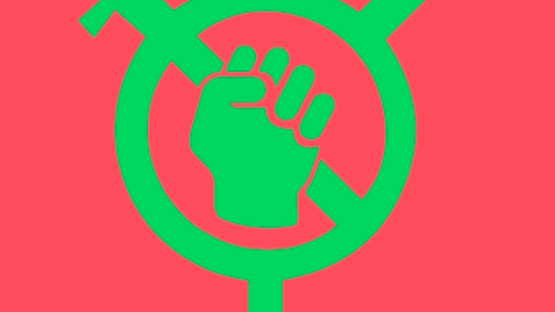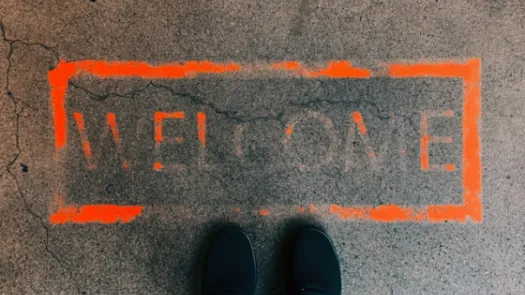A gender lens to the anonymity on social media debate
The “easy fix” of ending of online anonymity to protect people's speech forgets that anonymity is a key condition for many people in expressing themselves online.

Cases of female and gender diverse public figures being targeted with online harassment have become sadly common in the news. Female politicians are particularly affected – although journalists and in particular sports commentators are also frequently targeted as well. In some cases, the harassment goes as far death and rape threat for women and gender diverse people who dare speaking publicly. Beyond the freedom of speech implications – as we risk seeing women and gender diverse people being discouraged from engaging in public life or thinking twice before posting on social media for fear of repercussions – those cases can have a real impact on the health and well-being of survivors.
From this situation has emerged the demand for what may appear as an “easy fix”: the end of online anonymity, as some believe forcing to write under their own names will discourage trolls from harassing women and gender diverse people online.
When engaging in this debate, it is first of all important to acknowledge that this problem is not a new issue. It is merely the latest chapter in a long history of men silencing women and gender diverse people to shut them out from the public discourse.[1] The new element in here is just the medium. This is not to say we should not try and fix the problem but it is important to think about the consequences of the seemingly easy fix that are being suggested.
Anonymity is a key condition for many people in expressing themselves online. In some countries, anonymity is a necessary condition to criticise an oppressive regime or be open about one’s sexual orientation. But in every country, people often find themselves needing anonymity. It might be because they do not want their employer to see what they post or because their occupation requires them to refrain from publicly engaging on social media, as is the rule for civil servant in the UK. Or it might be because they wish to have a different gender identity online. Interviews with transgender individuals in various countries conducted by Privacy International for our report “From Oppression to Liberation: Reclaiming the Right to Privacy” has shown that trans people often choose to explore their gender identity first on online platforms before they commit to transitioning in the physical world.
Anonymity can also be essential to survivors of domestic violence. Considering that the metadata associated to social media accounts can often be enough to track someone’s location accessing online services without leaving an abuser hints of their activities or locations can be an essential step towards a life free of abuse. In fact, even for survivors of online harassment, having an anonymous account can be an easy way to carry on engaging on social media without having to face the torrents of abuse that defines online harassment.
For those reasons we see anonymity as an essential tool for women and gender diverse people and this is why we are dedicated to defending it. Real-name policy online is an obstacle to allowing people to define themselves in their own terms and to protect themselves from abuse, be it from governments, corporations or individuals.
Furthermore, while we do not dismiss the reality of the abuse coming from anonymous trolls, more and more research shows there is no real evidence that trolls act differently under their real name. In fact, there appears to be a “performative element” to trolling: trolls are “proud” of their behaviour, act openly, and want it to be tied to their identity, as they feel rewarded. This is especially true when the trolling is part of a wider political campaign and trolls feel legitimised by the public discourse and the actions of other trolls.
Adequately addressing online harassment therefore means addressing its root causes. Yes, it is easier to hope for a quick technical or a legal fix than attempting to smash patriarchy. But implementing a real-name policy would in fact be no easy-fix. Not only would it be difficult technically but, as we highlighted above it would have a significant impact on everyone’s right to privacy. So unless we tackle the very structure that allow men to go after women and gender diverse people online in an attempt to silence them, we will carry on seeing this pattern of behaviour repeating, not only on social media but on future platforms and in the physical world as well.
Gender and human rights experts, including the UN Special Rapporteur on violence against women, have developed recommendations to address harassment and threat of violence of women and gender diverse persons on line. Based on their work and our own research, Privacy International makes the following recommendations:
Recommendations to companies:
- Companies should allow for the creation of anonymous accounts
- Companies should avoid opting for real name policies and registration using an already existing social media should be kept optional.
- Companies should commit to prioritising the issue of online gender-based violence and allocate resources to inform and educate about the impact of online gender-based violence.
- Companies should provide efficient tools in local languages for reporting abuse.
- Reporting tools should be accessible, user friendly and easy to find. There should be full transparency regarding the processing and outcome of the complaint mechanism.
- Companies should commit resources to promptly take down content that amounts to threat and incitement to violence against women and gender diverse people.
Recommendations to state actors:
- States should commit to protecting online anonymity, ensuring that regulations on internet companies respect the international human rights framework and commit to fighting gender-based violence online
- States should ensure there is a comprehensive legal framework that holds perpetrators of online gender-based violence liable, without relying uniquely on criminal or punitive sanctions, by prioritising measures that protect survivors, repair the damage done, make perpetrators aware of their wrong behaviour, and prevent them from repeat their offences.
- States should allow survivors to obtain protection orders (for example, restraining orders) in family or civil courts to prevent their abusers from posting or sharing intimate images without their consent or engaging in other form of harassment or violence, whether online or offline.
- States should provide reparation measures, which should not, however, rely on compensation only. Such measures should include forms of restitution, rehabilitation, satisfaction and guarantees of non-repetition, combining measures that are symbolic, material, individual and collective, depending on the circumstances and the preferences of the victim.
- States should ensure the funding of helplines, shelters and specialised support for survivors of online gender-based violence.
- States should ensure that law enforcement agencies are adequately trained on matters related to online gender-based violence and understand that online violence is a form of gender-based violence that warrants a serious, trauma-informed response.
- States should ensure that law enforcement agencies and prosecution bodies are adequately trained and equipped to effectively investigate online gender-based violence, without infringing on human rights of the survivor or those who are being investigated.
- States should focus on preventing online gender-based violence by addressing the underlying causes that causes it, providing education, outreach and gender-sensitive training for Internet users on online and ICT-facilitated violence against women and girls in schools and communities.
[1] Beard, M. Women & Power – A Manifesto, Profile Books, 2017



